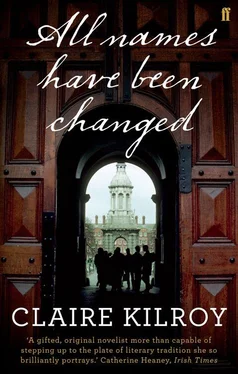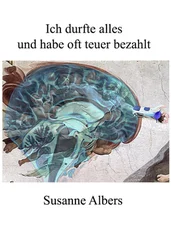Claire Kilroy - All Names Have Been Changed
Здесь есть возможность читать онлайн «Claire Kilroy - All Names Have Been Changed» весь текст электронной книги совершенно бесплатно (целиком полную версию без сокращений). В некоторых случаях можно слушать аудио, скачать через торрент в формате fb2 и присутствует краткое содержание. Год выпуска: 2010, Издательство: Faber & Faber, Жанр: Современная проза, на английском языке. Описание произведения, (предисловие) а так же отзывы посетителей доступны на портале библиотеки ЛибКат.
- Название:All Names Have Been Changed
- Автор:
- Издательство:Faber & Faber
- Жанр:
- Год:2010
- ISBN:нет данных
- Рейтинг книги:5 / 5. Голосов: 1
-
Избранное:Добавить в избранное
- Отзывы:
-
Ваша оценка:
- 100
- 1
- 2
- 3
- 4
- 5
All Names Have Been Changed: краткое содержание, описание и аннотация
Предлагаем к чтению аннотацию, описание, краткое содержание или предисловие (зависит от того, что написал сам автор книги «All Names Have Been Changed»). Если вы не нашли необходимую информацию о книге — напишите в комментариях, мы постараемся отыскать её.
All Names Have Been Changed — читать онлайн бесплатно полную книгу (весь текст) целиком
Ниже представлен текст книги, разбитый по страницам. Система сохранения места последней прочитанной страницы, позволяет с удобством читать онлайн бесплатно книгу «All Names Have Been Changed», без необходимости каждый раз заново искать на чём Вы остановились. Поставьте закладку, и сможете в любой момент перейти на страницу, на которой закончили чтение.
Интервал:
Закладка:
Even with the august backdrop of the eighteenth-century collegial architecture lending him ballast, Glynn was not restored to his former self. He fell forward into a slump, cutting a despondent figure on the deserted lawns, like one of the wretched characters in the novels of his late career. It was getting increasingly challenging to tell him apart from his protagonists these days. Perhaps this was a difficulty of perception Glynn experienced too. Who was he if not the voices of his books, and what were they, only inventions? He had been accused of self-parody in the recent past in a provocative article about life imitating art published by a young academic from a lesser educational institution seeking to make a name for himself. Good luck to him.
Glynn’s mood of resigned acceptance didn’t last long. The icy temperatures must have gotten the better of him, because he jumped to his feet and took off across the cobbles again. How quiet the campus was at night, and what a racket he made there. You could tell from the way he twitched, all elbows and knees, that he was entering a state of mounting agitation, his excess fury converting to kinetic energy. He must have resolved to commit his thoughts to paper, because he rushed along New Square towards his office, a man with a deadline to meet.
Unfortunately, the Arts Block was locked at that hour. Glynn rattled the long vertical metal handles of the glass doors in anguished protest as if they were the very bars of his cage. At least he was free to express his rage there without fear of retribution. It was hardly an adequate consolation, all the same.
He gave up and crossed over to the Berkeley, jerky as a hen. Two nights had passed since he’d slept in his own bed, in any bed at all. By then he had found himself in the company of some imaginary companion, one who was annoying him. He had to reprimand that individual more than once, but still they didn’t get the message. Glynn tried repeatedly to shake them off, pulling his arm away, swiping the air. ‘You’re a persistent fecker!’ he was heard to cry into the darkness of the rugby pitch. He did not stick around for a response but instead lashed up the steps of the Pav in his metal-tipped shoes, slamming the door behind him. At least he was back on form.
He lashed back out again seconds later, having got no satisfaction. Last orders had already been served. He paused at the top of the steps to gaze at the heavens and contemplate his plight before tackling the steep grassy bank. Here, he practically went on his hole. ‘Someone could fecking well kill themselves on that,’ the writer pointed out as soon as he had uprighted himself. He looked around for a response, but his companion had deserted him. Glynn shrugged in resignation. This did not surprise him in the least. That was what you were dealing with. Everyone let you down in the end. Besides, he was used to being alone, though he wasn’t alone, not half as alone as he thought himself.
He set off across the sports ground again, his metal caps destroying the wet pitch a second time. What did he care? What was it to him? You could see him rehearsing the arguments in his head. As a proud Irishman, he had no respect for the rugby, it being the coloniser’s game. Glynn took pleasure in proclaiming divisive opinions when drunk, relished nothing better than starting a good pub fight, and did so as if it were his national duty. He never got a rise out of the girls.
The destruction of the pitch, it is to be hoped, allowed him feel less impotent for a spell. He held dominion over a soggy rectangle of grass, and he tore up and down it with the righteous indignation of the oppressed. That was Glynn all over. Never did know which side his bread was buttered on. Never managed to learn.
I hadn’t anticipated that he’d double back on himself like that. He turned his head and looked right at me, where I stood hands in pockets under a tree. We stared at each other for a beat — hard to say which of us was more taken aback. I thought I’d been rumbled, but in the scale of odd things that had already loomed in and out of Glynn’s blurred field of vision that evening, my lone presence did not strike him as especially perturbing. He may as well have dreamt me. I didn’t move a muscle, and, sure enough, Professor Glynn dismissed me and set off on his travels again. Where was he off to next? There was only one way to find out.
The other three slipped out from behind the tree when he had loped on a safe distance. We watched his departing figure. ‘Do you think he saw you?’ Aisling whispered. I shook my head, and they believed me. God knows what possessed them to invest faith in my opinion. The poor things, they were shivering, faces white as ghosts. Blue, in fact, in that light.
Glynn navigated his way back to Front Square, now plodding and sullen, having reached the conclusion he inevitably reached after a hard night on the batter: that there was nobody out there to help him. Instead of heading for the Arch, he veered off to House Eight and admitted himself in the door. After thirty seconds or so, a light on the first floor came on. We looked at each other in surprise. Not one of us had seen that room lit up before. It existed in our minds only as a locked door.
Glynn appeared in the window. He stretched his arms above his head and drew the edges of the curtains together, erasing his silhouette from view. It was the gesture of a god. We waited until the light was extinguished before relaxing our guard. Past midnight by then. Faye crept forward and posted his glasses through the letterbox, wrapped in a cocoon of tissues. Quiet in there, she reported. Not until we were certain he was safely delivered did we call off our vigil. And how was he when you found him? future biographers would ask us. Fragile, we would tell them, but we did everything in our power to protect him. The girls might catch their death, but no injury would come to Glynn on our watch, we would see to it. If they’d hit him, those gurriers outside the public toilets, if they had harmed so much as a hair on his head, we’d have come down on them, the four of us, like a ton of feathers.
20 The Stolen Child
Glynn had little time for children and, according to his wife, showed next to no interest in his own. She would say that though, wouldn’t she, Gladys or whatever she was called. Gladys or Gloria or Glenda Glynn. Her accusation rings hollow in light of the fact that so much of Glynn’s work could be defined as childlike in character. This assertion may strike the attentive reader as a contradiction — children are rarely depicted in the work of Glynn, and when they do feature it is to appear out of thin air and catch you in the act, Mammy’s little double agents, no more than a plot device, really, a way of forcing events to a crisis. The exception was his own child, Sofia, the one who lived, or Cassandra as she was christened in the text, accursed daughter. Sofia Cassandra appeared just the once, but oh how memorably.
No, by the term ‘childlike’, another meaning altogether is here intended. Glynn’s writerly imagination was childlike in its intensity, rendering its surroundings as fresh as if experienced for the first time. He was never found wanting when it came to the profound. When personages of national importance passed away, it was Glynn whom the press canvassed for a quote, Glynn who appeared on the RTE News , his patrician hair nodding compassionately. He was the closest we had to a poet laureate. The urbane jadedness endemic in the work of the next generation got short shrift from him. It was true that his work had gone out of fashion lately. He would have been the first to admit that.
Glynn had spoken eloquently about the nature of the imagination when we first came together as a group without knowing it that filthy wet night in ’81. He evoked it as unknowable and majestic as a star and went on to rue its woeful undervaluation in our society. A number of audience members nodded their agreement at this assertion. The imagination was a faculty shed by most children once they hit double numbers, Glynn continued. It evaporated with exponential momentum until nothing was left by adulthood but a silty tidemark outlining what once had been. It was a sad irony of the human condition, the great writer pointed out, that the taller we grew in feet and inches, the smaller we shrank in scope. It wasn’t an irony at all, of course, we knew that; it was a paradox.
Читать дальшеИнтервал:
Закладка:
Похожие книги на «All Names Have Been Changed»
Представляем Вашему вниманию похожие книги на «All Names Have Been Changed» списком для выбора. Мы отобрали схожую по названию и смыслу литературу в надежде предоставить читателям больше вариантов отыскать новые, интересные, ещё непрочитанные произведения.
Обсуждение, отзывы о книге «All Names Have Been Changed» и просто собственные мнения читателей. Оставьте ваши комментарии, напишите, что Вы думаете о произведении, его смысле или главных героях. Укажите что конкретно понравилось, а что нет, и почему Вы так считаете.












